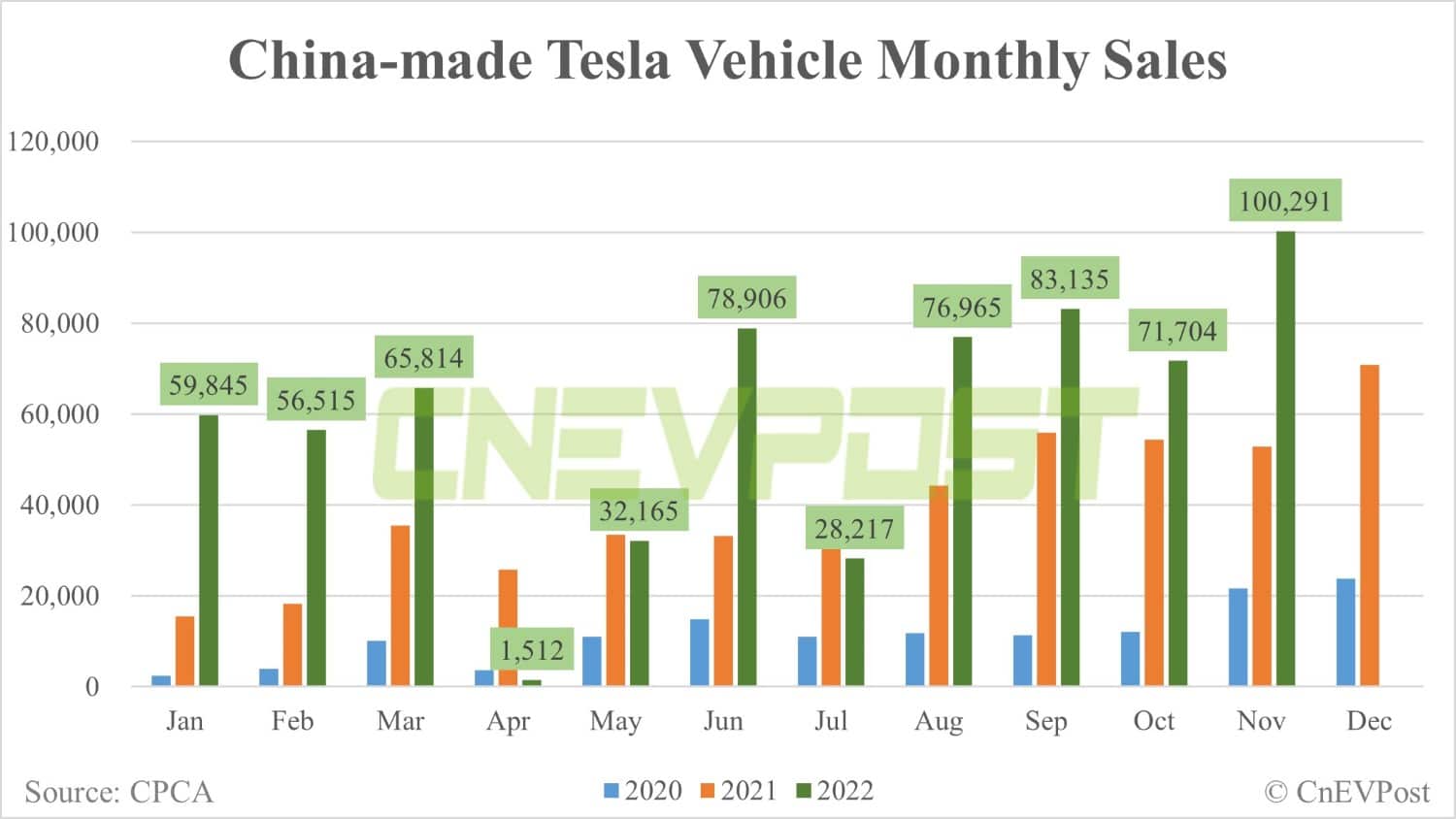This represents an 89.73 percent increase over the 52,859 vehicles sold in the same month last year and a 39.87 percent increase over the 71,704 vehicles sold in October.
Tesla sold a record 100,291 China-made vehicles in November, a single-month high, figures shared today by the US electric vehicle company show.
That's up 89.73 percent from 52,859 vehicles in the same month last year and up 39.87 percent from 71,704 vehicles in October.
In January-November, Tesla sold 655,069 China-made vehicles, up 62.86 percent from 402,231 in the same period last year, data monitored by CnEVPost shows.
Tesla's Shanghai plant produces the Model 3 sedan as well as the Model Y crossover locally. Notably, the plant not only delivers vehicles to Chinese consumers but is also an export hub for Tesla.
Tesla's pattern is to produce cars for export in the first half of each quarter, and cars for local delivery in the second half. As a result, the EV maker can be expected to make a significant number of deliveries to Chinese consumers in November.
For reference, of the 71,704 vehicles sold by Tesla Shanghai in October, 54,504 were exported and 17,200 vehicles were delivered to local consumers.
Tesla currently offers two versions of the Model 3 in China, as well as three versions of the Model Y. The entry-level versions for both models are priced below RMB 300,000 before subsidies and are eligible for the purchase subsidy that will expire at the end of the month.
The expected delivery dates for the full Model 3 and Model Y lineup in China changed to "December 2022" on December 2, according to the Tesla China website.
Prior to this change, all of these models showed expected delivery dates of 1-5 weeks.
While the latest change appears to mean little to no change in wait times for Tesla models in China, the move is significant.
If Tesla's website had been showing expected delivery dates of 1-5 weeks for models, potential consumers would have been concerned that their time to get deliveries would stretch into next year, which would have resulted in them ultimately not receiving the subsidy.
Showing the expected delivery date as December amounts to a soft promise to local consumers that they will continue to receive this year's purchase subsidy if they place their order now.
